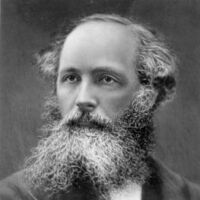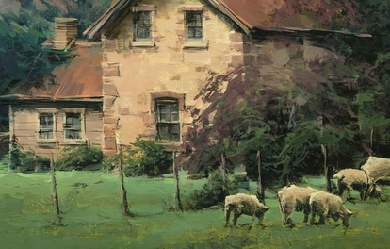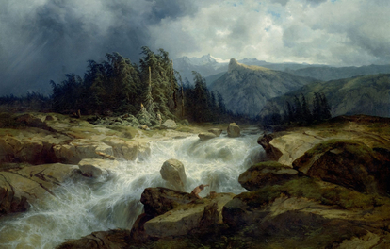Torto Volitans Sub Verbere Turbo Quem Pueri Magno in Gyro Vacua Atria Circum Intenti Ludo Exercent
Of pearies and their origin I sing:
How at the first great Jove the lord of air
Impelled the planets round the central sun
Each circling within each, until at last
The winged Mercury moves in molten fire.
And which of you, ye heavenly deities,
That hear the endless music of the spheres,
Hast given to man the secret of the Top?
Say, was it thou, O Fun, that dost prefer,
Before all temples, liberty and play?
Yes, yes, ’twas only thou, thou from the first
Wast present when the Roman children came
To the smooth pavement, where with heavy lash
They chased the wooden plaything without end. [580]
But not to tell of these is now my task,
Nor yet of humming—tops, whose lengthened neck,
With packthread bound, and handle placed above,
Amuses little children. Not of these,
But of the pearie, chief of all his tribe,
Do I now sing. He with a sudden bound
From out his station in the player’s hand
Descends like Maia’s son, on one foot poised,
And utters gentle music circling round,
Till in the centre of the ring it sleeps.
When lo, as in the bright blue vault of heaven
A falcon, towering in his pride of place
Perceives from far a partridge on the wing,
And stoops to seize him, even so comes down
Another pearie, and as when the sword
Of faithful Abdiel struck the apostate’s crest
And “sent him reeling back ten paces huge,”
So reeled the former pearie, nor can stand
The latter’s iron peg, and more come down;
Innumerable hosts of pearies, armed
With dire destructive steel. The players shout;
It is the shout of battle; the loud cry
Of victors rushing to the spoil; the wail
Of ruined boys, their pearie split, and all,
All lost.
Thus wags this ever—changing world,
And we may morals from the pearie draw.



